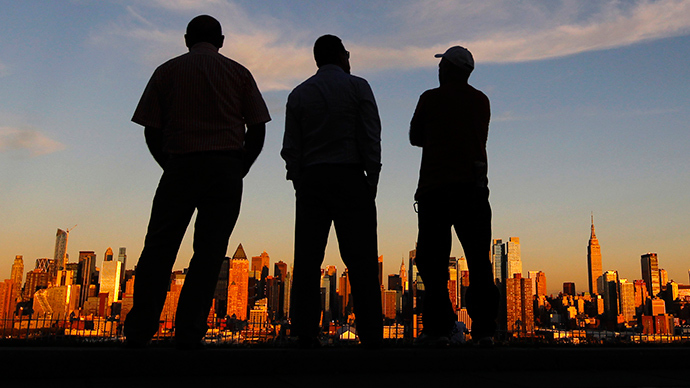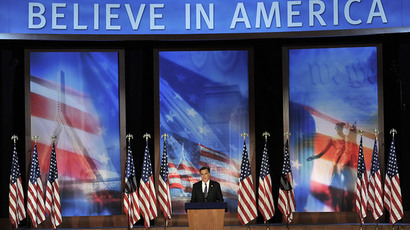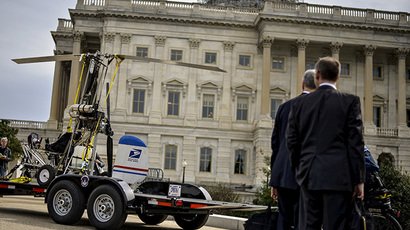Nearly 90 percent of Americans want major campaign finance reforms enacted

Almost half of Americans believe the campaign finance system needs to be completely overhauled, according to a new poll. Additionally, nearly 40 percent think the system needs fundamental changes. Most are not optimistic reform will happen, though.
A New York Times/CBS News poll found that 48 percent of Americans ‒ regardless of political affiliation ‒ believe that “the system for funding political campaigns has so much wrong with it that we need to completely rebuild it,” while another 38 percent think that “there are some good things in the system for funding political campaigns but fundamental changes are needed.” Only 7 percent of those surveyed believe that only minor changes are needed to the campaign finance system.
Two- thirds of respondents also believe that wealthy Americans have more of a chance to influence the elections process, although that was down from 75 percent of respondents in a poll conducted earlier in May.
“It’s a very small percentage that has the most influence,” said John Carpenter, 60, a retired probation officer from Choctaw, Oklahoma, told the New York Times in a follow-up interview.
“Who do you think the candidate is going to listen to?” he added. “Your average taxpayer, or the head of a corporation who can write a check for a million dollars?”
READ MORE: Leaked memo says major fundraising, catering to elite needed for Senate candidate to win
Nearly 60 percent of those surveyed ‒ 58 percent ‒ were pessimistic that politicians will vote to change the current campaign finance system in the US.
One change that more than three-quarters of respondents ‒ 77 percent ‒ wanted to see is limiting the amount of money individuals can contribute to political campaigns. When it came to unaffiliated groups spending money on political advertising, 78 percent said the groups, such as political action committees (PACs) should be limited in the amount of money they can spend on. In April 2014, the Supreme Court struck down a long-standing overall cap on political donations in its McCutcheon vs the FEC decision.
“I think too much money is spent on campaigns, and it ends up being lopsided,” said Sonja Rhodes, 57, a retired secretary and a Republican from East Wenatchee, Washington. “They should pass a bill and instead of billions of dollars, spending should be limited to $10 million or so.”
The vast majority of those surveyed ‒ 75 percent ‒ also believed that PACs should be required to publicly disclose their contributors. Currently that information is private.
“People with billions of dollars have a lot of influence with candidates that they help get elected,” Terri Holland, 67, a former database manager who lives in Albuquerque, New Mexico, told the NY Times. “You can see the dollar signs written on the wall.”
Over half ‒ 55 percent ‒ thought that politicians were swayed by those donations, promoting policies that directly help their donors “most of the time.”
“Candidates for political office are not in it just to serve the people; they also want the prestige and the perks,” said Elaine Manne, 69, a retiree from Alma, Ga. “They get so many little fringe benefits from being in office. Candidates should have to live for a period of time the way their average constituents live.”
Respondents thought that both parties benefited equally from the current campaign finance laws 58 percent of the time, while 23 percent thought that the GOP benefited most and 14 percent said the Democrats benefited most.
Those surveyed were not likely to have donated money to a candidate, party or other organization that supported or opposed candidates during an election campaign in the last four years. Only 16 percent had made donated. Political donations are down from a similar CBS News poll in September 1999, when 22 percent of respondents had donated to a candidate, party or other organization in the previous four years.
The New York Times and CBS News conducted the survey between May 28 and 31. The just over 1,000 respondents listed themselves as 25 percent Republican, 30 percent Democratic, 36 percent independent and 10 percent unknown.














